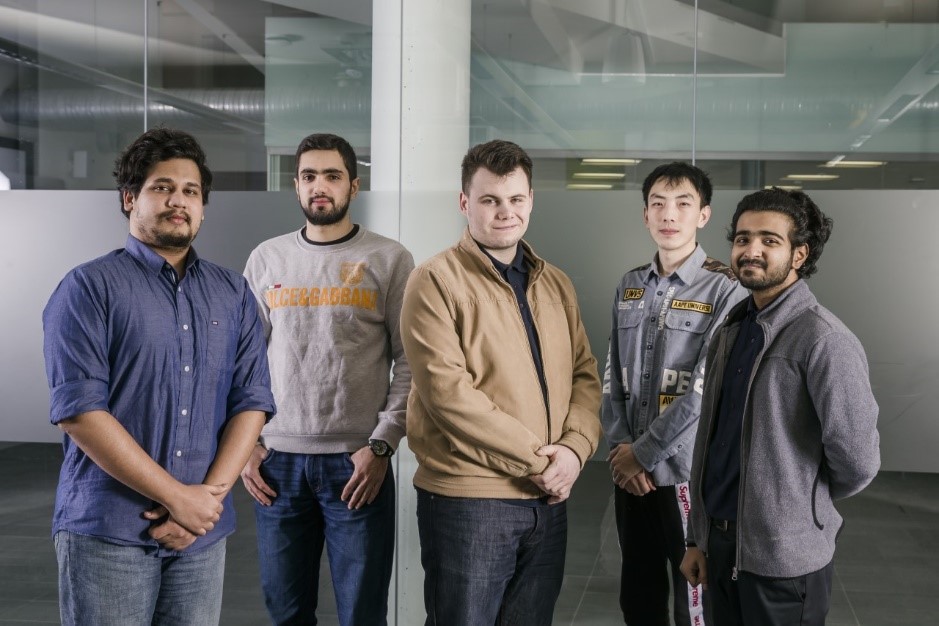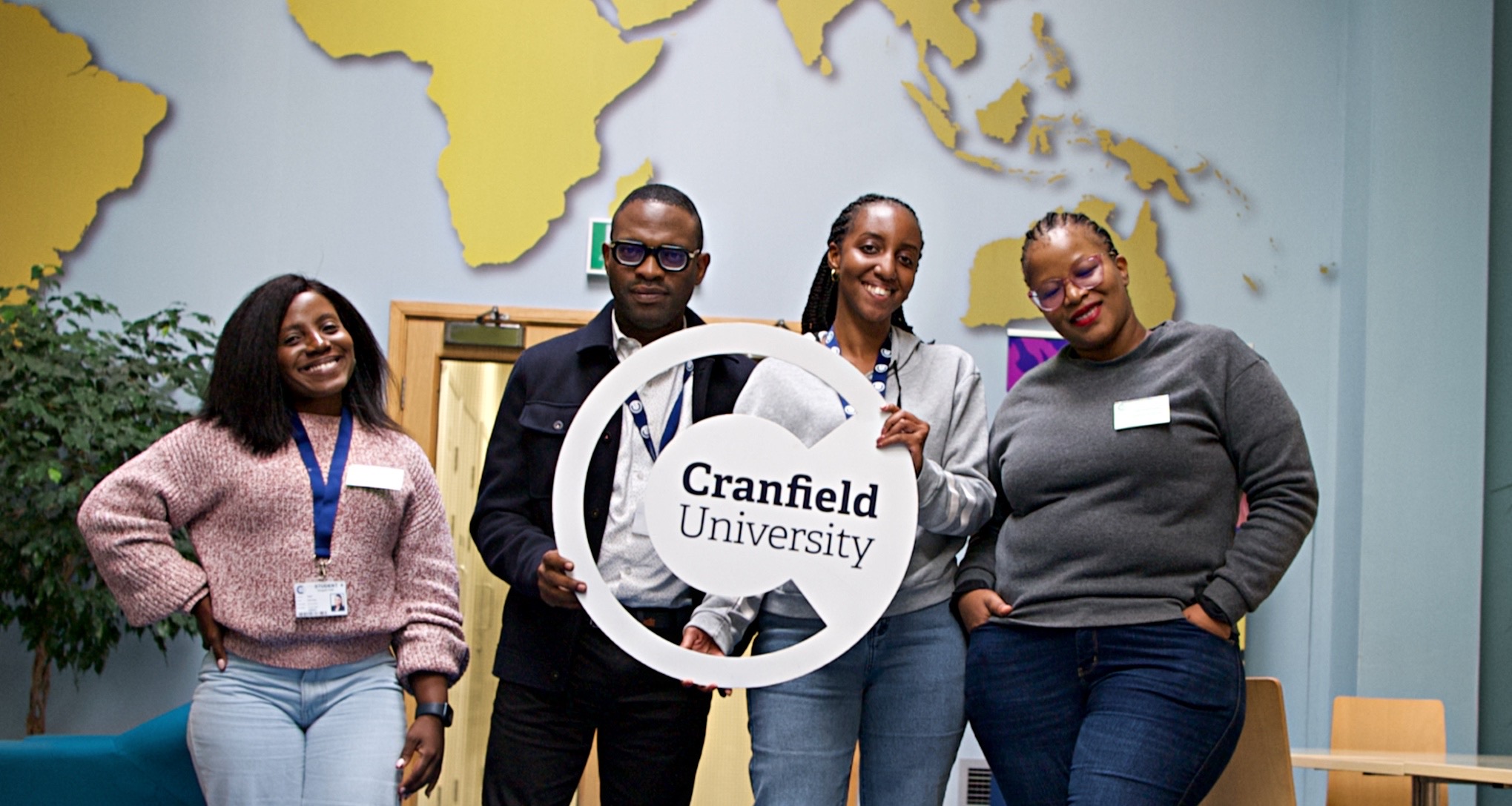Studying an MSc in Welding Engineering at Cranfield during Covid-19
01/10/2020

As a current full-time student on the Welding Engineering MSc course, I’m proud to say I’m part of one of the most comprehensive and exciting courses available in this sector.
I’m fortunate to be able to attend on behalf of The Hingston Scholarship, which I was awarded through academic ability, leadership potential and the impact of the course on my intended career path (further funding opportunities available here).
I joined this course with an extensive background in welding, but even so, I found myself learning new things in every module which is a true credit to the course content and the lecturers who deliver it. A novel process being developed here is Wire+Arc Additive Manufacturing, or WAAM (think 3D printing, but with welds). Cranfield is one of the world leaders in this exciting technology, and I have been fortunate to have had access to the facilities and researchers who are conducting such innovative and groundbreaking research.
The course began in October 2019 with the first six months consisting of taught modules, comprised of week-long lectures followed by private study weeks. Once the exams were complete, I moved onto the group project which involves working in a small diverse team of 4-6 fellow students to investigate a research topic. Our project was based in Cranfield’s state-of-the-art Welding Engineering and Laser Processing Laboratory (WELP) and initially consisted of lots of physical, hands-on research using the latest welding equipment. However, this was cut short due to the Covid-19 pandemic and we rapidly changed our project’s aims and objectives to a more literature-based study, meaning we could still complete it remotely without coming on site. Whilst challenging, it made me adapt to the situation and learn new communication skills, though ultimately it required the same level of hard work and dedication as being on-site.
The last four months have been spent working on my final thesis, which is investigating the suitability of laser welding of copper in the automotive electrical vehicle industry – given that the UK government pledged to ban both petrol and diesel cars by 2035, the ability to introduce laser welding has huge consequences for electric vehicles, such as improving the quality and increasing productivity. Working remotely is a challenge we have probably all encountered within the last six months, but I’ve had constant communication and support from my supervisors which has been reassuring.
A highlight from my duration at Cranfield was back in March when I won a competition to represent the University at the CleanEquity Monaco 2020 conference. This event features up to 30 of the world’s best in class next-generation technology companies from the sustainability sector. The competition was to propose an innovative sustainable technology or invention, highlighting the justification for this technology and commercial potential. Sadly, the event has been postponed to later in the year with the ongoing pandemic, but I will still be attending the conference when the rescheduled dates are confirmed.
Following the completion of the course, I will start a new career as a Welding Engineer for a large company who specialise in comprehensive asset management and critical engineering services. A number of my colleagues are former alumni of the MSc Welding Engineering program, which shows how valued and desirable the course is amongst the welding engineering community.
My advice to anyone thinking of studying the MSc in Welding Engineering is to go for it – the course is one of few available across the world and is frequently recognised by large employers as a desirable requirement for Senior and Principle Welding Engineers. This, along with a combination of state-of-the-art welding facilities at your disposal, industry experienced lecturers and the potential for fantastic experiences make the course highly desirable and well worth your time.
You can view more details on the Welding Engineering MSc course here.
Categories & Tags:
Leave a comment on this post:
You might also like…
Commonwealth Scholarships play a critical role in developing sustainability and leadership in Africa
Q&A with Evah Mosetlhane, Sustainability MSc, Commonwealth Distance Learning Scholar What inspired you to pursue the Sustainability MSc at Cranfield? I was inspired to pursue the Sustainability MSc at Cranfield because of the university’s ...
How do I reference a thesis… in the NLM style?
You may be including theses within your research. When you do so you need to treat them in the same way as content taken from any other source, by providing both a citation and a ...
Introducing… Bloomberg Trade Flows
Are you interested in world trade flows? Would it be useful to know which nations are your country's major trading partners? If so, the Bloomberg terminal has a rather nifty function where you can view ...
Cranfield alumni voyage to the International Space Station
Seeing our alumni reach the International Space Station (ISS) has a ripple effect that extends far beyond the space sector. For school students questioning whether science is “for them”, for undergraduates weighing their next ...
From classroom to cockpit: What’s next after Cranfield
The Air Transport Management MSc isn’t just about learning theory — it’s about preparing for a career in the aviation industry. Adit shares his dream job, insights from classmates, and advice for prospective students. ...
Setting up a shared group folder in a reference manager
Many of our students are now busy working on their group projects. One easy way to share references amongst a group is to set up group folders in a reference manager like Mendeley or Zotero. ...






